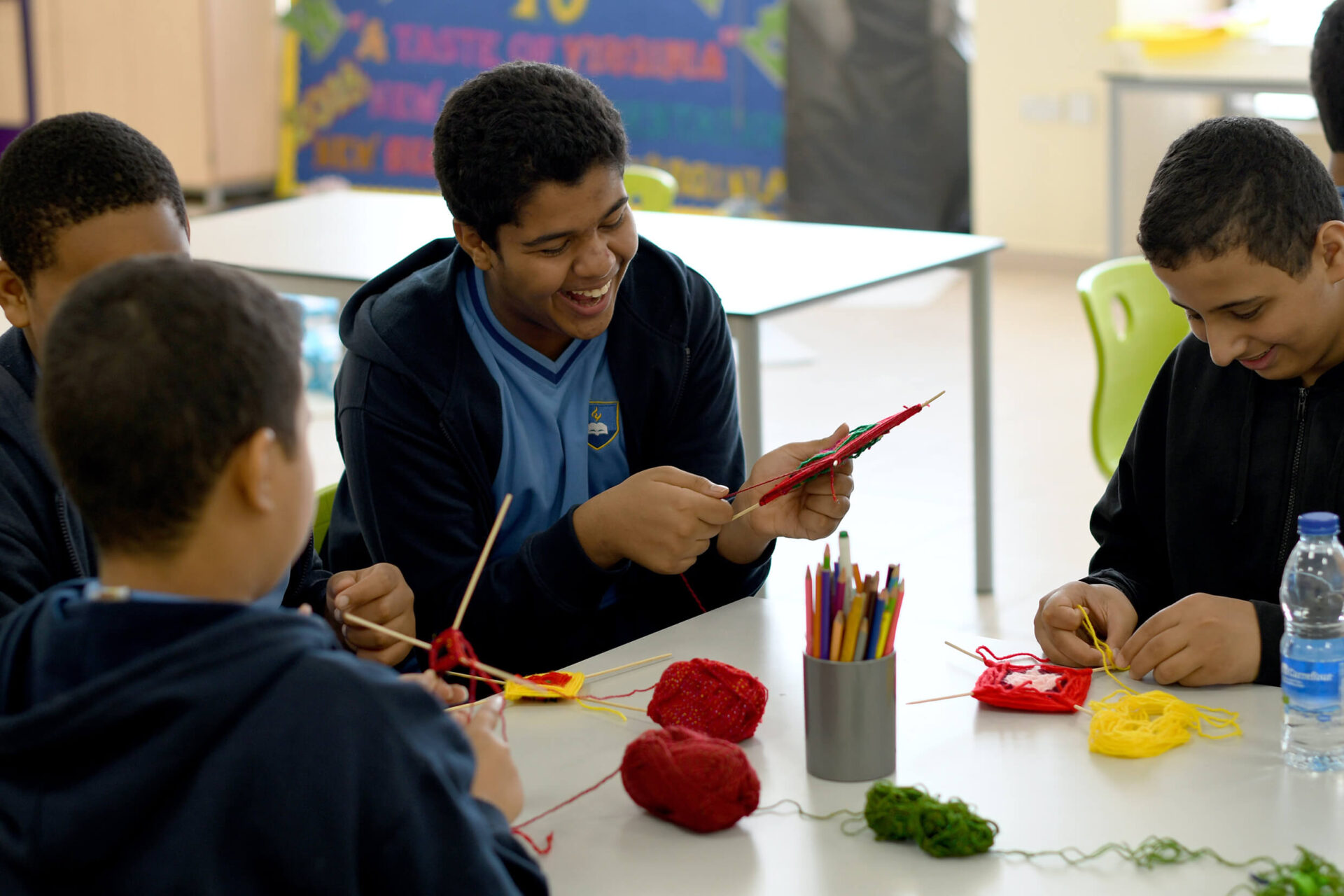Around two decades ago, the Internet was not hyper accessible and at our finger tips wherever we go the way it is today and so learning wasn’t as accessible as today. The education system has failed to follow and update itself. Its mindset still stuck in the past in both developed and developing countries. The existing higher education system in place today supports the existing economic model and not skills. Moreover, it burdens students with enormous debt who, in turn, can’t wait to finish their studies in order to pay off their loans.
History is important to understand the current learning methodologies and education system – one that is still stuck in the past. Nowadays, educated and uneducated individuals can access the world’s information at the touch of a fingertip. Considering the accessibility of the Internet, the education system must transition from spoon-feeding information to students toward teaching them to practically put this information to use and translate them into life and career experience. The education system must also focus on teaching skills instead of imposing useless information. The majority of students who graduate today end up having knowledge but no practical know-how and skills which are the most essential part of any working environment.
However, traditional education remains very important in specific domains such as medicine and law. While in domains such as art and marketing, inspiration and creativity are the most essential components we need a different mindset. In these fields, the education system could focus on how to deliver information in the form of inspiring stories that makes students feel a sense of belonging. It should also teach students to use technological tools and provide simulated experiences that will train them to handle situations that they will encounter in their field. As a result, students will enrich themselves through experience. The education system must reconsider its strategy in the fields of art and marketing. We need more people like Da Vinci who understand the art and engineering aspects of things. However, what led Leon Battista Alberti, Leonardo Da Vinci, Michelangelo and other geniuses toward their achievements was not studying but their passion and extreme curiosity to discover the world and produce greatness. This is exactly what the system should be focusing on: bringing out students’ passion and curiosity in order to push them to discover and unleash their full capabilities into the world.

(Photo by Aaron Burden on Unsplash)
In technology, business and many other sectors, the education system has failed in a major way. Take, for example, the most successful tech company leaders and business people who have set the fundamental standard for business technology. They mostly do not have university degrees and yet are some of the most inspiring and successful people alive. The founders of Microsoft (Bill Gates), Apple (Steve Jobs), Dell (Michael Dell), Facebook (Mark Zuckerberg) and Oracle (Larry Ellison) are all university drop outs while each of them adapted a certain mindset to reach their goals.
For technology, it’s purely a matter of knowhow. Those interested in tech need to learn the relevant information, such as programming. The focus should be on learning the language first and then moving onto live practices. Working with companies and various institutions will teach them to write code and become fluent in programming languages. As for business, it is the mindset that matters. There are those who really want to achieve something in the business world, have a certain vision and others who want to become a backbone. For those who want to become the leaders, the things that differentiates them from others is: their mindset, curiosity, the willingness to accept rejection without losing momentum, continuously learning new skills and improving existing ones in order to advance in their respective field.
How can the education system teach skills? Not all teachers have a background in education, math or biology. Many people have gained their knowledge through the school of life. The education system must always be ahead of their students and learn from the success stories of inspiring people in order to advance the existing system. For example, the education system must organize workshops given by those who are involved in their fields in order to teach students the tools and knowhow to succeed. They must also provide them with inspiring stories and simulations of real experiences in order to foster an environment that prepares them for their future careers.
What else should education systems consider teaching along with skills? Many things hold equal importance such as teaching ethics, emotion intelligence, language, and a positive mindset that decreases anxiety and stress. While learning a language is the most important form of communication and is used across the board, students should not be limited to one language. If I want to produce art, engage in business, or develop a new product and expand my reach across the world, then I must learn other languages. I would start with languages such as English, Chinese, German, Arabic and Spanish. It is in these places that the world of business, development and collaboration are headed. In my opinion, acquiring the right mindset is the hardest part since each human can be unpredictable and has hundreds of things going through their mind at any given moment. Setting up workshops enhances one’s way of thinking and gives them a boost so that they can explore their mind and its endless capacities. Education is not static but a process of trial and error that will prepare students for the future whether they decide to work on their own or for a company. Training will help them make up their mind about how to think, achieve, unleash their potential and ignite their curiosity for discovering, learning and improving. Furthermore, the education system must update itself to decrease the anxiety and stress it brings into students’ lives. It must stop overloading students with unnecessary information that will fade shortly after graduation, in addition to shortening the number of years needed to complete a degree. Also, it should consider getting rid of superfluous degrees that only serve to improve one’s social status. In fact, we have seen many people with prestigious degrees being surpassed by others who left the education system and became ‘street smart’ instead. In doing so, these people set an example for the whole world. Students that follow this example will avoid debt bondage. Decreasing students’ time receiving formal education by relying on more workshops to keep up-to-date on the newest trends and knowhow is important. This will give students the possibility of paying back their debts earlier and enhancing their overall quality of living while education doesn’t have to be so strict. Learning can be fun.
For example: Germany, a heavily-producing country that focuses on quality above all else. It applies to everything in life. We see that reflected in the overall organization of the country. The education system focuses not on simply educating students but allowing them to focus on their strengths and interest, and to discover their skills. These aspects lead the Germans toward building themselves up then redirecting themselves onto a suitable career path, Germany has been doing this for a long time. Ask yourself the question, “Why are German machines and cars very efficient and long lasting? Why Germany is a leading country in the European nation and one of the world’s most economically advanced nations? Following Japan, why does Germany have a reputation for creating the best products in all categories? Is it that they are born smart or have special genes?” When everyone was focusing on immigrants from developing countries with important degrees, Germany was supporting and bettering their institutions. Their institutions focus more than anything on teaching skills by providing practical experience. If we learn anything, it is that Germany has figured out not to only give value to humans with university degrees, focusing instead on recruiting people with skills. They have given more importance to institutions over than universities in contrast to the rest of the world. Though university students are smart, students in intuitions are mostly those who did not fit in school and decided to take a more practical path instead. In Germany, students have the choice because their culture provides that opportunity. In the eyes of many developing countries, this focus on institutions is seen as a failure. Today, people should keep up-to-date on their skills. This is what the world needs more of. Institutes and universities can learn so much from those who down this path.
Teach me what I really need to know this ever-changing world. Although I may not be book smart, I can get whatever information that I need online. I need to learn skills that matter for building a career path and to be accepted in the employment sector. I know I am a capable human being. I just need to discover my skills in order to be discovered and give back. If any country in the world wants to lead by example in the future, skills, ethics, emotion intelligence and language acquisition is what they need to focus on.
Teach me what I need to know in this life, for life is short and there must be a better way to live it. Learning, discovering, and improving is a matter of curiosity and mindset equipped with the power of communicating and the belief in trial and error. Each of us must undergo failure and success to excel and reach the best version of ourselves.
Published on 18 September 2020.



